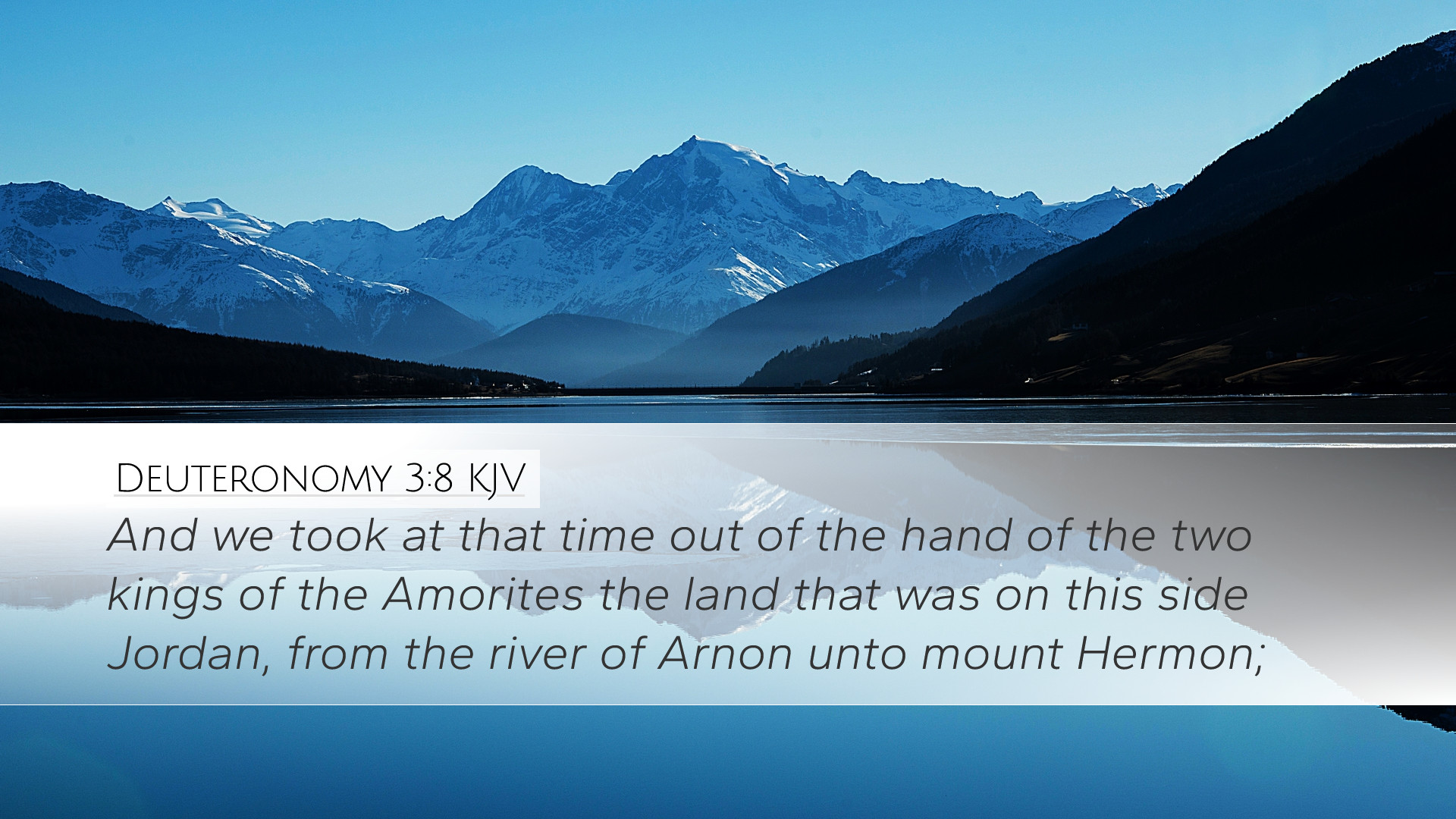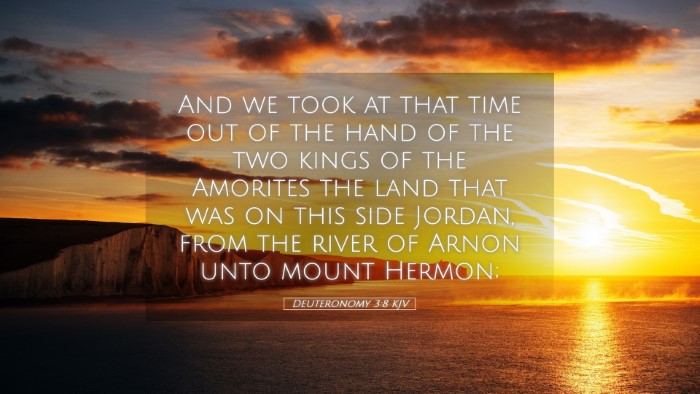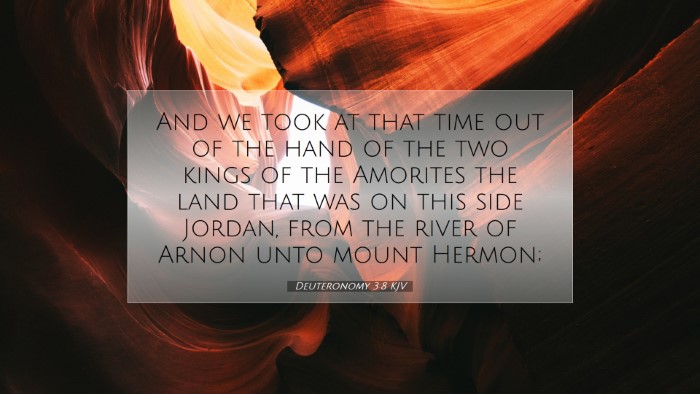Commentary on Deuteronomy 3:8
Verse: "And we took the land at that time out of the hand of the two kings of the Amorites, which were on this side Jordan; from the river of Arnon unto mount Hermon."
Introduction
The verse in Deuteronomy 3:8 marks a significant moment in the history of Israel as they prepare to enter the Promised Land. It reflects the conquests that the Israelites experienced as they journeyed out of Egypt and into the land that was promised to their forefathers. This commentary seeks to explore the theological and practical implications of this verse, drawing insights from the works of Matthew Henry, Albert Barnes, Adam Clarke, and others.
Historical Context
Matthew Henry emphasizes the importance of remembering God's faithfulness in granting victory over formidable enemies. The mention of the two kings of the Amorites signals not only a military accomplishment but also a divine intervention. These kings, Sihon and Og, are representative of the challenges faced by the Israelites as they sought to claim their inheritance. Henry notes that this conquest served to build the courage of the people in anticipation of the greater battles that lay ahead.
Albert Barnes also highlights that the Amorites were powerful adversaries, and their defeat illustrated the might of God working through Israel. The strategic location of their kingdoms, situated near the Jordan River, posed significant threats to Israel's access to the land. By recounting this victory, the Israelites were reminded of their dependence on divine strength, as God enabled them to subdue their enemies.
Theological Significance
In a theological sense, Adam Clarke points out that this verse speaks to God's sovereignty. The victories were not merely military; they represented God's overarching plan to establish His people in the land He had promised. Clarke suggests that the phrase "from the river of Arnon unto mount Hermon" signifies not only a geographical space but also a delineation of God's promise. It encapsulates the breadth of His providences and preparations for His people.
Character of the Kings
The mention of the 'two kings' introduces a discussion about the nature of leadership and power in relation to God's purpose. Matthew Henry contrasts the tyrannical reign of Sihon and Og with the just governance expected among God’s people. Their defeat serves as a divine retribution for their idolatry and oppression, emphasizing that God’s kingdom favors humility and righteousness over pride and violence.
Application for Believers
The narrative of conquest and provision in Deuteronomy 3:8 invites believers to reflect on their spiritual journeys. Albert Barnes asserts that Christians today find in this scripture an encouragement to confront their own "Amorites"—the sin and obstacles that stand in the way of spiritual growth and fulfillment. Like the Israelites, believers are summoned to remember the faithfulness of God as they face challenges.
Adam Clarke further encourages individuals to recognize that God has prepared victories for them as they navigate their faith. This sense of assurance can bolster endurance in trials, as believers lean on God's promises, mirroring the confidence exhibited by the Israelites during their conquests.
The Promise of God and Human Responsibility
In studying this verse, one can see a dual emphasis on divine sovereignty and human action. The Israelites did not receive the land without effort; rather, it was through their courage and obedience that they obtained God's promises. Matthew Henry notes that this interplay teaches a valuable lesson about the necessity of faith coupled with action. Just as the Israelites had to take up arms and face their enemies, so must believers today actively pursue holiness and engage in the spiritual battles they encounter.
Conclusion
The commentary on Deuteronomy 3:8 brings forth rich insights for pastors, students, theologians, and all who study scripture. This verse encapsulates the theme of divine providence, the nature of leadership, and the call to act in faith. As we delve into the depths of this scripture, may we find inspiration and guidance in our walk with God, equipped to take on the challenges that lie before us, rooted in the historical victories of God’s people. The legacies of Sihon and Og may remind us that while earthly powers may rise and fall, God's purpose prevails through His people who trust in Him.


